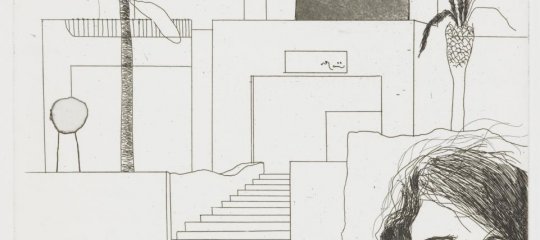The International Conference on Language Variation in Europe 4
Λευκωσία - Κύπρος, 17-19 Ιουνίου 2007http://www.ucy.ac.cy/~iclave4
Linguistic Field(s): Historical Linguistics; Sociolinguistics
Call Deadline: 30-Nov-2006
The International Conference on Language Variation in Europe (ICLaVE) is a biannual meeting addressing any aspect of linguistic variation observed in languages spoken in present-day Europe. The conference is intended to provide a platform for every scholar interested in issues related to this topic, be it as a historical linguist, a sociolinguist, a specialist in grammatical theory, a dialectologist, a psycholinguist or from any other point of view.
The University of Cyprus is hosting the 4th International Conference on Language Variation in Europe (ICLaVE 2007) from 17 to 19 June 2007 in Nicosia, Cyprus.
ICLaVE is one of the most important conferences for research in the area of language variation in Europe. It aims to bring together specialists in European languages/languages spoken in Europe with the purpose of discussing methodological and theoretical issues in the study of language variation and change. Scholars in any area of linguistics, such as historical linguistics, psycholinguistics, dialectology, sociolinguistics etc., are invited to submit proposals for a poster or paper presentation or a workshop.
Abstracts should be submitted as Word or RTF documents by e-mail to iclave4 ucy.ac.cy (preferably) or by surface mail to ICLaVE4, Pavlos Pavlou, University of Cyprus, P.O. Box 20537, CY-1678 Nicosia, by November 30th 2006.
Workshop proposals:
The organizing committee invites workshop proposals on specific topics related to the general theme of the conference. We have defined three broad areas for workshops: (a) intonational/prosodic variation, (b) delineating dialect continua (c) lexical variation and its consequences for phonology, morphology or syntax
Proposals for workshops in other areas are also welcomed. Workshops are to be organized as two to four-hour sessions on a specific topic with 4 to 8 20-minute papers and time for discussion. In their proposal, workshop organizers should briefly describe the workshop topic and give the names, affiliation and e-mail addresses of presenters, as well as the abstracts of individual papers.
Important dates:
Please note that the deadlines for workshop proposals and the deadlines for paper/poster presentations are different.
Deadline for workshop proposals: October 30th
Notification of acceptance: December 30th
Deadline for paper/poster abstracts: November 30th
Notification of acceptance: February 1st
Scientific Committee:
Peter Auer (University of Freiburg)
Frans Hinskens (Meertens Instituut & Vrije Universiteit Amsterdam)
Paul Kerswill (Lancaster University)
Inge Lise Pedersen (University of Copenhagen)
Mats Thelander (University of Uppsala)
M. Teresa Turell (University Pompeu Fabra, Barcelona)
Local committee (University of Cyprus)
Pavlos Pavlou, Department of English Language and Literature
Marilena Karyolemou, Department of Byzantine and Modern Greek Studies
Andreas Papapavlou, Department of English Language and Literature
Stavroula Tsiplakou, Department of Education
Elisabet Sivas, Department of Byzantine and Modern Greek Studies
Keynote speakers
Aggeliki Malikouti-Drachman, University of Salzburg
Brian Joseph, Ohio State University
Peter Trudgill, University of Fribourg
For questions or requests for information please contact: iclave4@ucy.ac.cy










